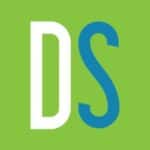- Major platform update architected to deliver high availability, scalability, and secure interoperability with other enterprise DLT platforms
- R3 launches Hyperledger Lab, Harmonia, to support industry-wide collaboration on interoperability
R3, the enterprise distributed ledger technology (DLT) and services firm, today announced the next generation of its flagship platform Corda at its hosted event in New York. The updated version has been designed for global financial market infrastructure providers and central banks to enable applications to interoperate seamlessly and securely across other open enterprise DLT networks.
R3, in partnership with Adhara, has also launched a Hyperledger Foundation Lab – Harmonia – to accelerate the development of interoperability protocols for regulated financial institutions. Harmonia will address the constraints and requirements of regulated financial networks to achieve true atomic settlement across blockchain networks. It was informed by HQLAX and Fnality, which demonstrated the world’s first proof of concept trustless atomic DvP (Delivery versus Payment) repo settlement between Corda and Hyperledger Besu. This will bring regulated markets one step closer to safe and secure enterprise DLT interoperability.
“As a trusted partner to global financial market participants, we are committed to enabling an open, trusted and enduring digital economy – and the next generation of Corda is the next step in delivering on this mission,” said R3 Co-Founder and Chief Strategy Officer, Todd McDonald. “We believe this economy will be built upon an interconnected ecosystem of multiple DLT platforms, where apps will transact seamlessly and securely across networks – not isolated or walled gardens of ‘public’ or ‘private’ networks. We are already seeing demand for Corda’s enhanced capabilities from central banks exploring CBDCs for cross-border payments and wholesale settlement.”
“Building for the future is best done together and requires cross-industry collaboration to enable the interoperability that will drive widespread adoption of DLT as a transformational technology,” said Daniela Barbosa, Executive Director of Hyperledger Foundation. “The Hyperledger community is at the forefront of technical innovation in blockchain interoperability. We are excited R3 and Adhara have contributed Harmonia to Hyperledger Labs as we truly believe in working openly and cooperatively to build the critical common software core for next generation deployments.”
“The need for interoperability between DLT networks is well known throughout the industry. Enabling diverse ecosystems to connect and innovate avoids vendor lock-in and helps overcome the siloed infrastructures that regulated markets are forced to rely on today,” continued Richard Gendal Brown, Chief Technology Officer at R3. “Our collaboration with Hyperledger Foundation is testament to the belief that open industry collaboration across the distributed ecosystem is critical to reimagine the current standards surrounding the movement of digital assets and currencies across chains.”
Corda is already deployed by hundreds of institutions operating at scale in global regulated markets, including DTCC, Euroclear, the Central Bank of UAE, SIX Digital Exchange (SDX), and Spunta Banca DLT. On top of R3’s commitment to delivering regulatory-friendly open interoperability, the underlying principles guiding the development of the next generation of Corda includes features informed by R3’s in-production customers, including scalability, high availability, enhanced privacy and security, and developer-friendly tools. It’s also distributed as a single open-source codebase to foster developer contributions and reduce total cost of ownership.
“SDX, the world’s first fully regulated financial market infrastructure for digital assets, strongly advocates for interoperability within the enterprise DLT space. This capability is crucial in supporting our vision of providing institutional clients with innovative, trusted, and efficient FMI and services for digital assets,” noted David Newns, Head of SIX Digital Exchange. “Since 2021, Corda has facilitated our end-to-end infrastructure for digital securities. We welcome the launch of the Hyperledger Lab, Harmonia, and the interoperability between Corda and Ethereum, as it will enable us to securely expand SDX’s reach to both other regulated networks and public blockchains: a key step in building the future of financial markets infrastructure.”
“Having helped lead the build out and deployment of transformative global financial markets DLT networks, HQLAX recognizes the importance of those networks being able to communicate with each other,” said Guido Stroemer, CEO at HQLAX. We have been working closely with R3, Adhara, and Fnality to forge a path towards seamless cross-chain interoperability. We built HQLAX on Corda from the outset – and the new version of the platform will enable us to further future-proof our offering and provide the flexibility our customers need.”
“Adhara’s intraday liquidity and payments solutions are built on the belief that the new wholesale digital ecosystem will comprise a set of complementary connected business platforms operating on different technologies,”said Julio Faura, CEO at Adhara. “Following our role in last year’s cross-chain repo swap pilot across Corda and Enterprise Ethereum alongside Fnality and HQLAX, we believe the Harmonia Lab is a natural step forward. It will provide an important building block to accelerate the industry’s development of wholesale interoperability protocols.”
“Fnality and its participants have been at the forefront of interoperability innovation, testing end-to-end DvP and PvP across Enterprise Ethereum and Corda platforms in partnership with Adhara,” said Rhomaios Ram, CEO, Fnality International. “Interoperability and interface standards are fundamental to the future digital capital markets ecosystem, enabling each platform to focus on its strengths while interoperating seamlessly. This is a very important initiative to drive adoption of DLT across financial markets.”
Next-Gen Corda is available today as public beta. R3 invites feedback from new and existing users on the principles that underpin the next generation of Corda as they start to build the next wave of distributed networks.

